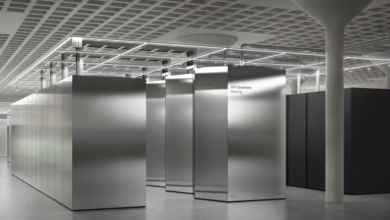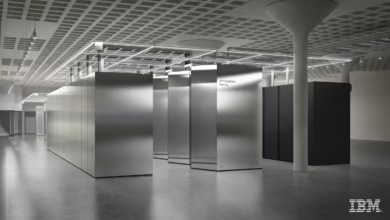IQM Quantum Computers Expands Global Ambitions Beyond Europe

▼ Summary
– IQM raised over $300 million in a Series B round led by Ten Eleven Ventures, reaching unicorn status and bringing total funding to $600 million.
– The company builds on-premises quantum computers and a cloud platform, with its strongest market in Europe but recent sales in APAC and the U.S.
– Funding will support commercial expansion, especially in the U.S., and R&D focused on hardware, software, and error correction to enhance reliability and practical applications.
– IQM plans to develop a developer platform similar to an SDK to attract more programmers and compete with major tech companies like IBM, Google, and Microsoft.
– The startup has sold 30 quantum computers globally, including to Oak Ridge National Laboratory, and is advancing toward deploying 150-qubit systems.
Finnish quantum computing firm IQM Quantum Computers has achieved unicorn status following a substantial $300 million Series B funding round. This investment, spearheaded by U.S.-based cybersecurity specialist Ten Eleven Ventures, marks a pivotal moment for the company as it accelerates its global expansion strategy. While Europe remains its strongest market, IQM is now directing significant resources toward strengthening its commercial and technological footprint in the United States and Asia-Pacific regions.
The fresh capital will fuel both commercial growth and research and development, with a clear emphasis on translating quantum science into practical, real-world applications. Facing competition from tech giants like IBM, Google, and Microsoft, IQM recognizes the need to advance its hardware and software roadmap aggressively. According to co-founder and co-CEO Jan Goetz, the company plans to invest heavily in chip fabrication capabilities, software development, and error correction research.
Error correction has emerged as a critical frontier in quantum computing. As the industry shifts away from merely pursuing higher qubit counts, the focus is increasingly on stability and reliability. Goetz emphasized that balancing quantity with quality is essential for developing systems that deliver consistent, usable results. This shift in priorities reflects a broader industry recognition that quantum advantage must be grounded in practical utility rather than theoretical potential.
Beyond hardware, IQM is also prioritizing software accessibility. The company aims to develop a developer-friendly platform comparable to a quantum computing SDK, intended to attract a broad community of programmers. This platform will leverage Qrisp, an open-source initiative from Berlin’s FOKUS research institute, offering an alternative to existing frameworks like those from IBM.
With over 300 employees, IQM maintains a significant presence in Germany alongside its Finnish headquarters. However, the new funding will support team expansion and enhanced commercial efforts, particularly in the U.S. market. Goetz indicated that local assembly may be considered in the future to navigate tariff implications and better serve American clients.
The company recently secured a notable sale with the Oak Ridge National Laboratory, a U.S. Department of Energy facility, underscoring its growing stateside presence. Alex Doll, co-founder of Ten Eleven Ventures, highlighted the strategic alignment between his firm’s focus on cybersecurity and IQM’s technological direction. Doll will join IQM’s board as part of the investment.
Additional participants in the Series B round included Tesi, Schwarz Group, Winbond Electronics, EIC, Bayern Kapital, and World Fund, bringing IQM’s total funding to approximately $600 million. Goetz pointed to recent commercial and technical achievements, including the delivery of 30 quantum computers worldwide, as validation of the company’s trajectory. While absolute numbers remain modest, IQM is already deploying 54-qubit systems and is on track to introduce 150-qubit machines, signaling steady progress in a still-nascent industry.
(Source: TechCrunch)


